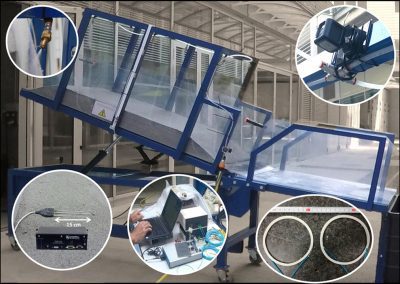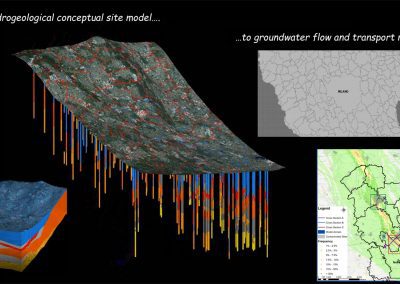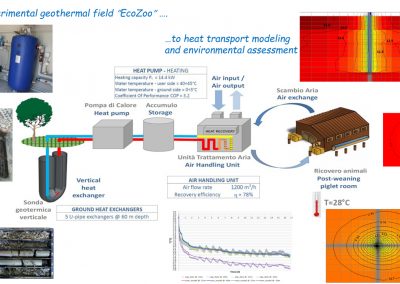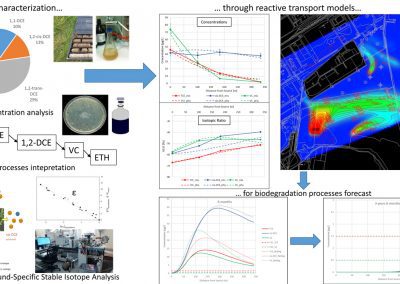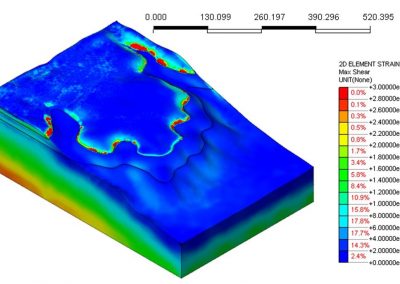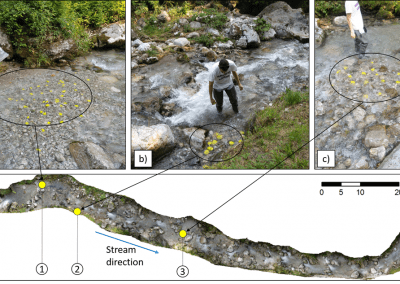Transport Infrastructures and Geosciences
The research activities contribute to the research areas of the Department “Natural Systems, Environment and Spatial Planning”, “Structures and Infrastructures” and “Materials and Materials Mechanics”. All consistent with the Integrated Strategic Plan of the Politecnico di Milano (Polimi) and aimed at increasing the impact through high quality training and research (national and international), with particular attention to technology transfer and social responsibility. The research includes: design, economic assessment, construction, management and maintenance of transport infrastructure; development and implementation of innovative techniques and materials for flooring (high standards of performance, durability and environmental sustainability); geoscience and applied geology (assessment, monitoring and protection of natural resources; management of hydrogeological risk related to slope dynamics and interactions with human activities); feedback with geomatics and human sciences. In the field of applied geosciences, research is developed starting from the reconstruction of the geological and hydrogeological conceptual model and its rendering through a numerical model. The management of natural resources is oriented towards: sustainable management of groundwater resources in porous and fractured/karst media, including qualitative and quantitative aspects; characterisation of contaminated sites, including the application of compositional and isotopic fingerprinting techniques; assessment of the environmental impact of low-enthalpy geothermal systems. In the field of geological and hydrogeological risk, the group develops methods and models for the prediction, prevention and management of risks associated with a) landslides and their interaction with surface and groundwater, including the development of innovative and low-cost monitoring techniques and emergency management, and b) geological risks related to structures and infrastructure, with fundamental reference to the quantification of drainage processes in groundwater works. The research group is actively engaged in the development of innovative models, methods and technologies for the economic evaluation and construction of transport infrastructures (mainly roads and airports), characterized by high levels of environmental compatibility and sustainability. The activities start from the economic evaluation of projects, considering the various phases of the construction process (feasibility study, preliminary design phase, final design phase), and the definition of urban quality indicators and indices. The group is also focused on Life Cycle Analysis to monitor the effects of infrastructure on spatial planning and the environment. For the evaluation and design phases, methods, models and technologies are engineered to optimize the feedback between mobility needs and all environmental constraints, focusing on: impact mitigation (including, for example, visual, acoustic, pollution); environmentally sustainable paving (hot and cold asphalt, fibre-reinforced concrete, coloured and natural stone paving); multipurpose paving (photocatalytic, anti-noise, anti-vibration, piezoelectric, heat storage paving); recycled asphalt paving with recycled materials, industrial process waste and waste in general. Research activities incorporate elements of Geomatics for data acquisition, filtering, rendering, analysis and management, as well as the evaluation of feedback with Human Sciences. The Group is involved in synergistic activities with other groups within the Department and with other Departments of Polimi. It relies on an extensive and consolidated national and international network, which has led to significant funding in competitive programs. The impact on the company is measured through the variety and high quality of the consulting and research activities developed by the group with leading partners in the industrial and public sector.

